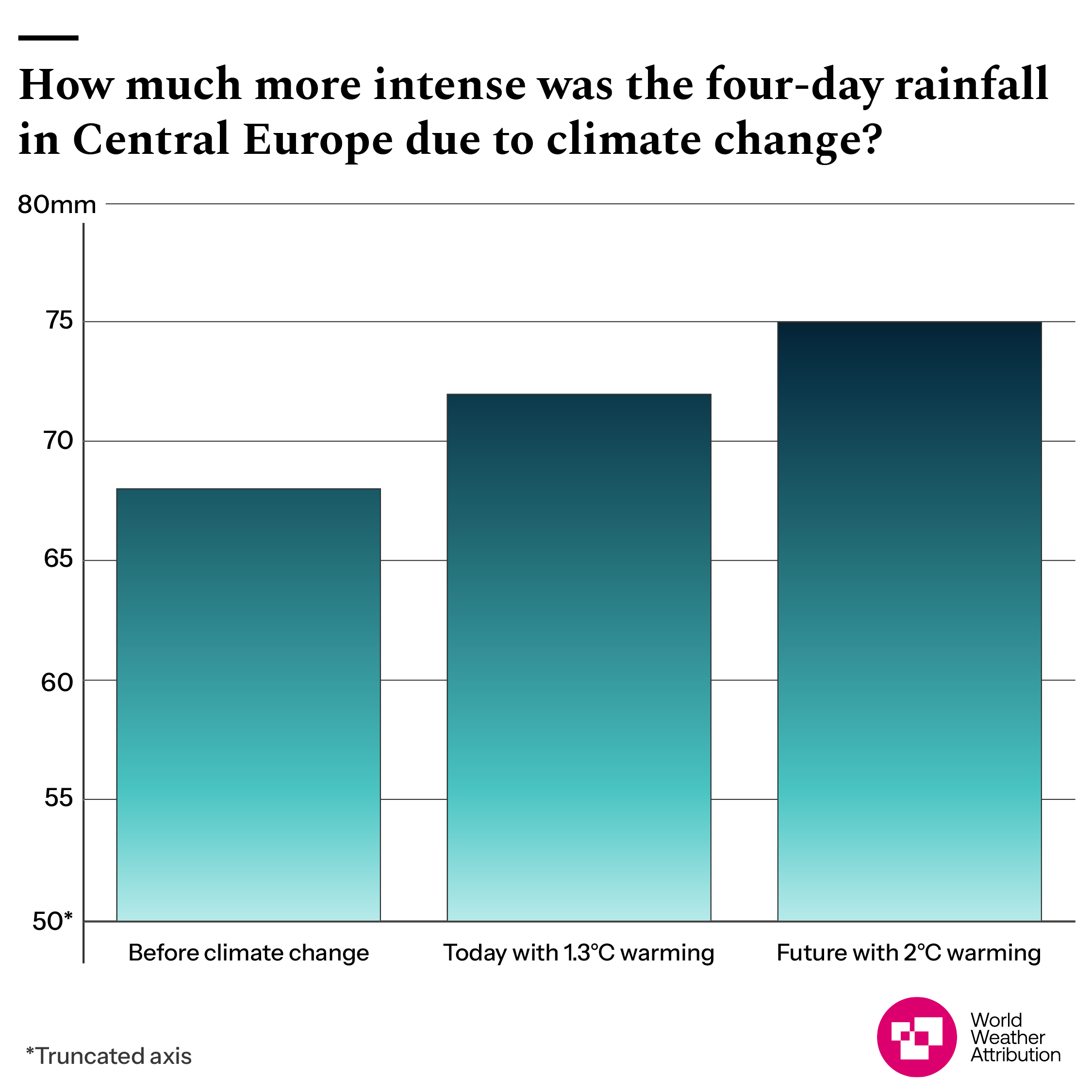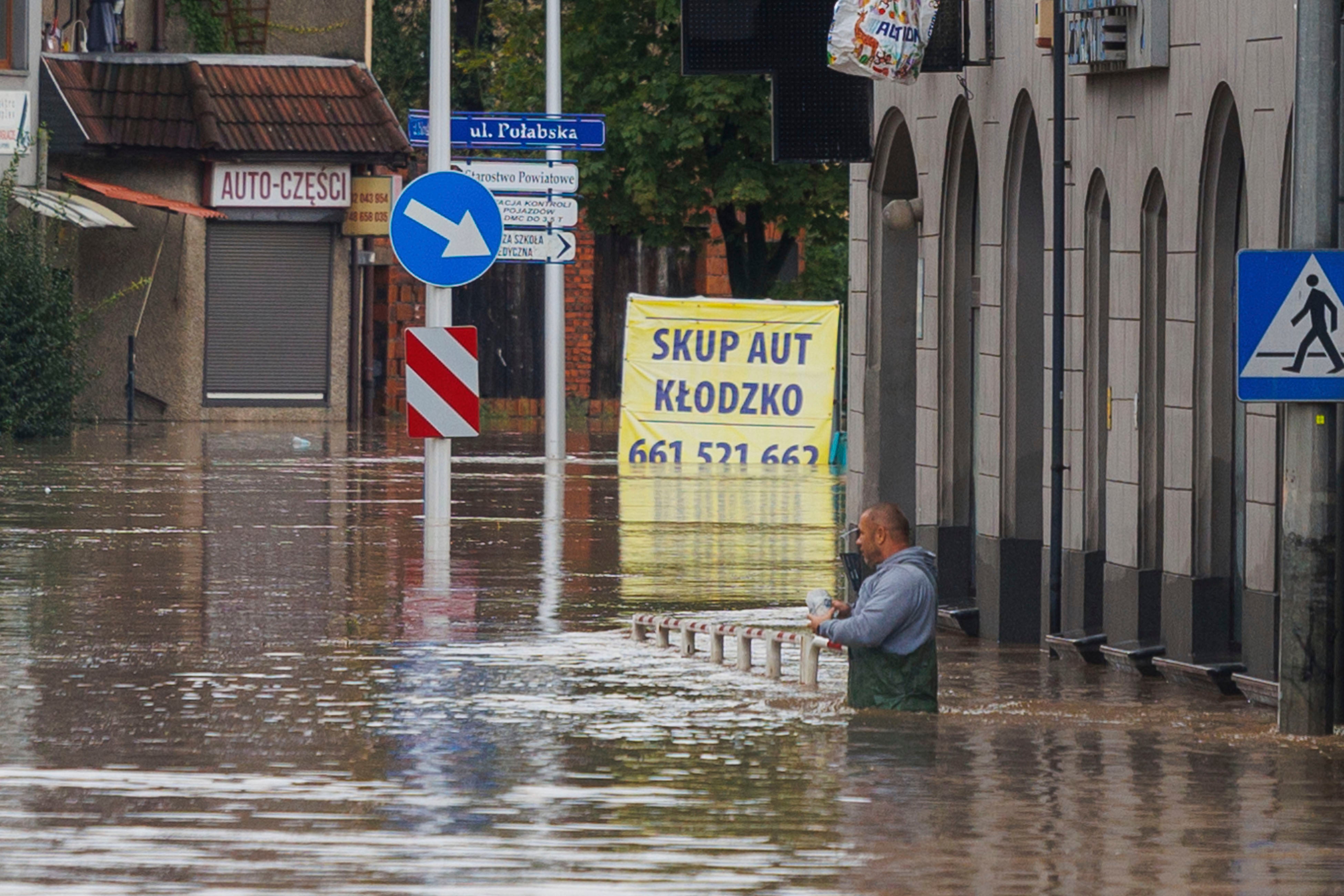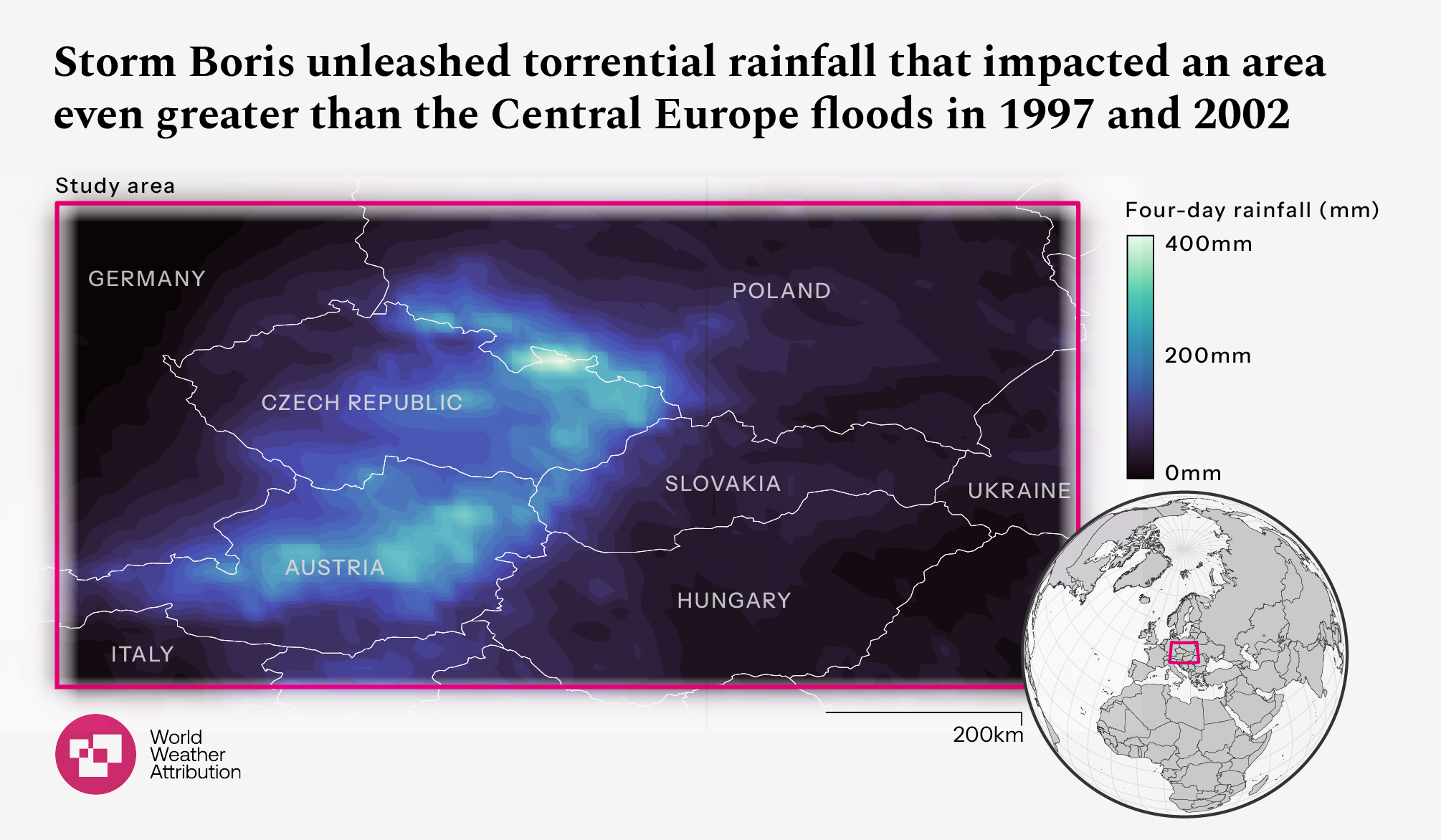Europe’s worst floods on record made twice as likely by climate crisis – and will only get worse
Scientists ask for stronger climate action to reduce risks of future disasters
Your support helps us to tell the story
From reproductive rights to climate change to Big Tech, The Independent is on the ground when the story is developing. Whether it's investigating the financials of Elon Musk's pro-Trump PAC or producing our latest documentary, 'The A Word', which shines a light on the American women fighting for reproductive rights, we know how important it is to parse out the facts from the messaging.
At such a critical moment in US history, we need reporters on the ground. Your donation allows us to keep sending journalists to speak to both sides of the story.
The Independent is trusted by Americans across the entire political spectrum. And unlike many other quality news outlets, we choose not to lock Americans out of our reporting and analysis with paywalls. We believe quality journalism should be available to everyone, paid for by those who can afford it.
Your support makes all the difference.Europe’s worst floods on record which just left entire towns submerged are now twice as likely to happen because of the climate crisis, revealing a grim preview of what lies ahead for the continent, scientists have warned.
The deluge caused by Storm Boris this month in many parts of central Europe left at least 24 people dead and caused billions of euros in damage. It was regarded as the worst flooding in the continent since records began.
Boris stalled over central Europe and, in just four days, brought unprecedented levels of rainfall across Poland, Austria, Slovakia, Romania, and the Czech Republic, leaving rivers overflowing and many places submerged.
A study published by an international team of scientists warns that as global temperatures rise, extreme floods like this one are becoming more frequent, with the climate crisis doubling their likelihood.
It notes that rainfall from the storm was 7 per cent heavier and attributes it to a warming atmosphere, which can now hold more moisture than in pre-industrial times.
The intensity of rainfall has increased from 68mm before the temperatures started rising due to the warming caused by human activities to 72mm today.
If average global temperatures rise 2C by the 2050s as projected, storms like Boris could become 50 per cent more frequent, unleashing more rain, upto 75mm, across Europe, the study by the World Weather Attribution states.
“Yet again, these floods highlight the devastating results of fossil fuel-driven warming,” Dr Joyce Kimutai from Imperial College London’s Grantham Institute said.
“Until oil, gas, and coal are replaced with renewable energy, storms like Boris will unleash even heavier rainfall, driving economy-crippling floods.”

The flooding from Boris devastated many parts of Poland, Austria, Slovakia, Romania, and Czechia, with some of the worst impact felt in urban areas along major rivers.
Videos showed dramatic rescue operations involving helicopters, people carrying elders and children through waist-deep water, and people waiting on their roofs as their houses got submerged.
Towns along the Polish-Czech border were particularly hard hit, and Vienna saw parts of the city submerged as the Danube river overflowed. Some areas experienced five times the average September rainfall as authorities scrambled to evacuate people and erect flood defences.

In Poland alone, thousands of homes were damaged and major infrastructure such as roads and bridges was swept away by the floodwaters. The storm has broken 12 dams, leading to widespread flooding.
Power outages forced schools, factories and hospitals to shut temporarily. Meanwhile, in Romania’s eastern regions, entire neighbourhoods were submerged and emergency crews were stretched to their limits.

“Even with days of preparation, floodwaters still devastated towns, destroyed thousands of homes, and saw the European Union pledge €10 billion in aid,” Maja Vahlberg, a technical advisor with the Red Cross Red Crescent Climate Centre, said.
“Countries need to plan for unprecedented floods and integrate climate change into land-use planning.”
The new study suggests that while the number of Vb depressions – the weather system responsible for these floods – has remained consistent since the 1950s, the intensity of rainfall events has increased due to warmer air and ocean temperatures in the region.
“The 1997 and 2002 floods in central Europe were described as once-in-a-century events, but two decades later, global warming has increased from 0.5 to 1.3C, and they have happened again,” Dr Bogdan H Chojnicki, climatologist at Poznań University, said.
“The trend is clear – if humans keep filling the atmosphere with fossil fuel emissions, the situation will be more severe.”

While Europe has advanced greatly in forecasting and emergency planning since those floods around the turn of the century, experts say more needs to be done to be able to cope with the increasing challenge of disasters. Europe is also the fastest warming continent due to the climate crisis.
Researchers say there’s a need for better floodplain storage, improved warning systems, and more resilient infrastructure. But most importantly, the report stresses the need for stronger climate action to reduce the risks of future disasters.
“Crippling droughts in southern Italy. Devastating wildfires in Portugal. Killer floods in Central Europe... climate change is wreaking havoc in Europe but politicians across the continent are trying to pull back on climate commitments,” said Friederike Otto, senior lecturer in climate science at Imperial College London.
“Climate change is an existential threat, especially for poorer parts of society. Europeans need to know that tackling it will make their lives so much better.”
The cost of inaction will be measured not only in lives lost but also in the economic toll these disasters take, experts say.
The €10 billion pledged by the European Union for repairs following Storm Boris may just be the tip of the iceberg if global temperatures rise further.
“Climate models and physics show us that these types of intense downpours are getting more frequent and more intense as the world warms,” said professor Hannah Cloke from the University of Reading.
“This should spur action to prepare for weather events that could happen at any time, as well as reducing the emissions that are contributing to their intensity.”
Join our commenting forum
Join thought-provoking conversations, follow other Independent readers and see their replies
Comments